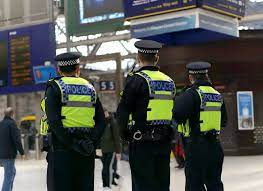By James Simons-
The College of Policing has launched a consultation on a “robust” revised Code of Ethics for more than 200,000 people working across policing in England and Wales.
This will be the first time the code will include a specific Code of Practice for chief officers, which sets a statutory requirement on how they can promote and support a professional culture in their force.
The Code of Ethics, first introduced to policing in 2014, is designed to guide ethical decision-making by all officers and police staff and outlines the professional behaviours that the public can expect from the service.
Chief Constable Andy Marsh, chief executive officer at the College of Policing, said: “Our Code of Ethics guides the actions taken and decisions made by everyone working in policing. It outlines the professional behaviours that you have a right to expect from the service.
“We’ve recently updated the code to make sure that it reflects the needs of modern society and we’d like to hear what you think of the changes.
“The Code of Ethics encourages policing professionals to understand their role in acknowledging and responding to our diverse society. It outlines how people and their property should be treated with fairness, dignity and respect, in accordance with their needs.
“We’re keen to hear from members of the public, community groups and organisations that represent the public so that your views can contribute to shaping a police service that you can be proud of.”
He added: “The Code of Ethics is supported by a Code of Practice which sets a statutory requirement for chief officers. The Code of Practice includes actions that organisational leaders can take to support people in their force to use the ethical policing principles and demonstrate professional behaviour.”
Changes to the code include clarity on what should happen when behaviour does not meet the public’s expectations.
A code that removes jargon and is clearer and more accessible to the public and outlines the expectations of candour for all officers and police staff; and
The Code of Practice, which provides direction to chief officers on how they can promote and support a professional culture in their force
The College of Policing said the code out for consultation includes “months of work” that involved committee of volunteers from across policing and the wider criminal justice system; serving officers and police staff; academics; representatives from partner organisations; and some members of the public.
The consultation will remain open until April 28. You can read the new code and complete an online questionnaire on the College of Policing website.
How receptive the police force will be to recommendations from the public remains to be seen.
This publication has for the past few months advised police commissioners across the country to stop recruiting police officers with criminal records, but no authourity in the force has demonstrated any tendency to adopt the sensible recommendation.
The force has also been advised to prosecute all officers found to have committed unarguable levels of racism in line with statutory law, given the longstanding evidence of racism in the force which often stops at tribunal hearings.
Misconduct by police officers has been widespread over the years, with too many disgracing the force through some of the shameful things they say and circulate on whassap. Terminating their employment removes such offenders from the force, but whether that is enough punishment is a question of opinion and debate.
The British pubic are urged to participate in the consultation for the good of the society, so that we can have the highest level of respect and honour for the respectable law abiding officers who do their best to protect society.

